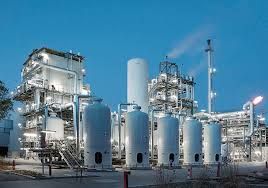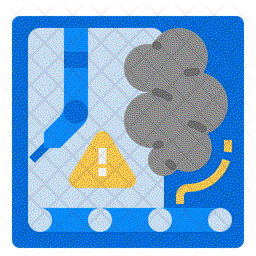Fire Insurance
"Provides protection against all risks associated with erection, testing, commissioning of machinery etc."

Fire Insurance
Fire insurance was started after marine insurance. Marine insurance was useful only to persons engaged in some kind of trade. The fire havoc can be experienced by persons of all walks of life. The Great Fire of London in 1956 destroyed 13,000 houses in four days. This ‘Great Fire’ gave birth to Fire Insurance.
A fire insurance is a contract under which the insurer in return for a consideration (premium) agrees to indemnify the insured for the financial loss which the latter may suffer due to destruction of or damage to property or goods, caused by fire, during a specified period.
A fire insurance is an agreement between two parties, i.e., insurer and insured, whereby insurer undertakes to indemnify the loss suffered by the insured in consideration for his (insured) paying of certain sum called ‘Premium’. A fire insurance contact may be defined as ‘an agreement’ whereby one party in return for a consideration undertakes to indemnify the other party against financial loss which the latter may sustain by reason of certain subject-matter being damaged or destroyed by fire or other defined perils up to an agreed amount.
Principles of Fire Insurance Policies
Insurable Interest in Fire Insurance.
The principle of Good Faith in Fire Insurance.
The principle of indemnity.
Proximate Cause of Fire Insurance.
The doctrine of Subrogation.
Warranties in Fire Insurance.
Types of Fire Insurance Policy
Standard Fire & Special Perils Policy
Fire is a hazard potent enough to cause losses to a great extent to any residential, commercial or industrial properties, both movable and immovable. In the fire insurance policy, 'Fire' means the production of light and heat by combustion or burning and it has broken bounds i.e. fire is not limited or confined to usual limits. A fire insurance policy provides indemnity against loss by expenses incurred towards repair, replacement, and damages to the insured property due to fire and allied perils. Sum insured for immovable property and other contents are generally fixed on the basis of the reinstatement value of the property. Properties like stocks in trade are always insured on a market value basis. However, if the property is insured on a value less than it ought to be insured else it qualifies for under-insured, condition of average will apply in case of loss.
Consequential Loss (Fire) Insurance
Popularly known as Fire Loss of Profit (FLOP) and Business Interruption policy. This policy indemnifies against the loss of profit/earning in case of interruption of business due to fire and allied perils. Gross profit is taken/fixed as the sum insured in this policy for an agreed period of indemnity. Loss under this policy is payable only if there is an admissible claim for material damage in Fire policy. In other words, the claim is payable only if the operations of the business are interrupted due to fire or other perils covered in fire policy. Moreover, the period of indemnity is also specified which is the time the company will take to recover out of loss and a maximum period of disruption expected by the Insured. It’s normally taken along with the Fire Policy and it is part also part of IAR and Mega Policy.
As the name suggests, its an All Risk Insurance policy issued to industries having overall Sum Insured of Rs. 100 crores and above in one or more locations in India, other than risks ratable under Petrochemical Tariff. Just like other All Risk Insurance policies this policy is also governed by exclusions rather than covers. Industries operating on a large scale generally choose to opt for an IAR policy to cover a wide range of perils such as fire and allied perils, burglary, accidental damages, breakdown as well as a business interruption in a single policy rather than going for separate policies. This policy not just reduces the administrative costs and time involved in keeping track of various policies but also offers covers wider than those covered in these individual policies. For e.g. though the average clause is applicable to this policy but under insurance of up to 15% is ignored in case of claim settlement. This policy covers all risks/perils other than those which are specifically excluded.
Industrial All Risk Policy
As the name suggests, its an All Risk Insurance policy issued to industries having overall Sum Insured of Rs. 100 crores and above in one or more locations in India, other than risks ratable under Petrochemical Tariff. Just like other All Risk Insurance policies this policy is also governed by exclusions rather than covers. Industries operating on a large scale generally choose to opt for an IAR policy to cover a wide range of perils such as fire and allied perils, burglary, accidental damages, breakdown as well as a business interruption in a single policy rather than going for separate policies. This policy not just reduces the administrative costs and time involved in keeping track of various policies but also offers covers wider than those covered in these individual policies. For e.g. though the average clause is applicable to this policy but under insurance of up to 15% is ignored in case of claim settlement. This policy covers all risks/perils other than those which are specifically excluded.
Mega Risk
This policy covers the cost of repairs or replacement of damaged parts of plant and machinery as a result of unforeseen and sudden physical damages. The cover affords protection to the insured machinery whilst at work or at rest and also when they are being dismantled for the purpose of cleaning, inspection, and overhauling or removal to another position or in the course of their operations or subsequent re‐erection, provided these are performed in the same premises. The MBD insurance also covers loss or damage due to fire, in insured electrical machinery, originating from within such insured machinery and resultant fire damage to such machinery only,. The Standard Fire & Special Perils Policy specifically exclude this risk. So, in other words, this policy also covers the losses excluded in fire policy in terms of the electrical exclusion/dynamo clause.





